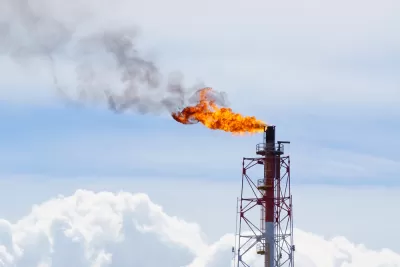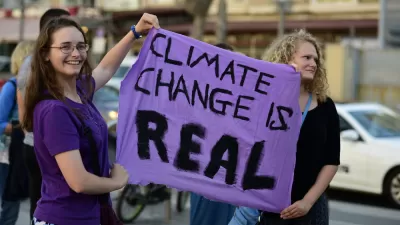A Washington Post investigation found major discrepancies between actual emissions and the levels reported to the United Nations.

A Washington Post investigation by Chris Mooney, Juliet Eilperin, Desmond Butler, John Muyskens, Anu Narayanswamy, and Naema Ahmed found that "Across the world, many countries underreport their greenhouse gas emissions in their reports to the United Nations." The analysis revealed gaps ranging from 8.5 billion to 13.3 billion tons of undercounted emissions per year.
This underreporting means that the challenges of mitigating climate change and reducing emissions are even bigger than they seem. The United Nations Framework Convention on Climate Change (UNFCCC), which oversees global emissions reduction efforts, points to "the application of different reporting formats and inconsistency in the scope and timeliness of reporting (such as between developed and developing countries, or across developing countries)" as reasons for the discrepancies. The authors, meanwhile, call it "the result of questionably drawn rules, incomplete reporting in some countries and apparently willful mistakes in others."
According to the article, key factors include subtractions made by countries based on the claim that land itself absorbs CO2, undercounted methane emissions, and underreported fluorinated gases.
The gap, the authors say, is caused in large part by the U.N.'s reporting system. "While the Paris agreement calls for a more transparent system by the end of 2024, it could take until 2030 to get to robust reporting — an eternity compared with the tight time frame the world needs to get it right."
FULL STORY: Countries’ climate pledges built on flawed data, Post investigation finds

Alabama: Trump Terminates Settlements for Black Communities Harmed By Raw Sewage
Trump deemed the landmark civil rights agreement “illegal DEI and environmental justice policy.”

Study: Maui’s Plan to Convert Vacation Rentals to Long-Term Housing Could Cause Nearly $1 Billion Economic Loss
The plan would reduce visitor accommodation by 25% resulting in 1,900 jobs lost.

Planetizen Federal Action Tracker
A weekly monitor of how Trump’s orders and actions are impacting planners and planning in America.

Wind Energy on the Rise Despite Federal Policy Reversal
The Trump administration is revoking federal support for renewable energy, but demand for new projects continues unabated.

Passengers Flock to Caltrain After Electrification
The new electric trains are running faster and more reliably, leading to strong ridership growth on the Bay Area rail system.

Texas Churches Rally Behind ‘Yes in God’s Back Yard’ Legislation
Religious leaders want the state to reduce zoning regulations to streamline leasing church-owned land to housing developers.
Urban Design for Planners 1: Software Tools
This six-course series explores essential urban design concepts using open source software and equips planners with the tools they need to participate fully in the urban design process.
Planning for Universal Design
Learn the tools for implementing Universal Design in planning regulations.
Caltrans
Smith Gee Studio
Institute for Housing and Urban Development Studies (IHS)
City of Grandview
Harvard GSD Executive Education
Toledo-Lucas County Plan Commissions
Salt Lake City
NYU Wagner Graduate School of Public Service





























